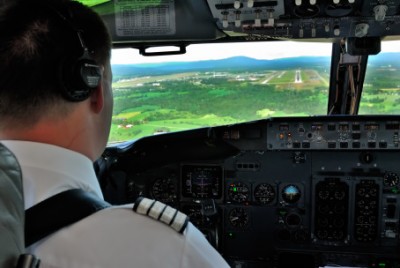As stranded passengers on low-fare carrier Norwegian Air began to feel the full effect of a strike by Norwegian’s pilots on Wednesday, questions were rising about the airline industry deregulation that ushered in competition and low fares. Some wonder whether it’s worth the constant turbulence of the past two decades.

Norwegian Air, which cancelled all its domestic flights in Scandinavia as a result of the expanded strike by its pilots, also furloughed 800 of its flight attendants on Wednesday. “If the pilots don’t come to work, we have to lay off the flight attendants,” Norwegian Air spokesman Lasse Sandaker-Nielsen told news bureau NTB. The flight attendants had already announced a sympathy strike to support the pilots.
Trade union federation Unio, meanwhile, joined the larger Norwegian labour federation LO in boycotting Norwegian Air on its routes that were still operation. In doing so, Unio urged thousands of teachers, researchers and other members to choose other airlines than Norwegian. Most travelers already were, with newspaper Dagens Næringsliv (DN) reporting a “full stop” in ticket sales at Norwegian, as its business customers chose other airlines as well.
Passengers like Eline Ceciie Buestad and her two-month-old baby Lukas were left waiting at Oslo’s main airport at Gardermoen on Wednesday, wondering whether their flight to Rome would take off. It was supposed to depart at 8am Wednesday but had been delayed twice by mid-morning.
Conflicts rise as fares fall
Airline ticket prices have fallen dramatically in recent years, while heavy financial losses, labour conflicts and even safety concerns have taken off. Calls have started going out for more regulation, and not just from pilots like those currently on strike at Norwegian Air.
“There’s been enormous competition (since airlines were deregulated) and the winners are you and me who want to go on holiday,” said Espen Andersen, an assistant professor in strategy and logistics at the Norwegian Business School (BI). Andersen, who specializes in aviation, told newspaper Dagsavisen, though, that “the losers are the airlines.” The challenges the airlines face are enormous, both for established carriers that were used to a history of regulation and the start-ups like Norwegian who now are running into problems with their business models as well.
For Norwegian, the conflicts rose when the airline broke out of its Scandinavian niche. All its growth in recent years has been outside Norway, where costs are lower but competition fierce. An airline like Norwegian can’t afford to export its model and relatively high pay and benefits levels from Scandinavia, if it must compete with airlines that have an entirely different and much lower cost structure.
“McKinsey (the international consulting firm) did a study in 2006 where they looked at returns on invested capital in 41 industries,” Andersen noted. “The airline industry came out last.” He added that US regulators have since tried to regain some control over the turbulent airline industry, and the working conditions within it, while industry restructuring has led to more stability and helped restore profits.
Pilots urge re-regulation
The two leaders of the Norwegian Cockpit Federation, Rune Sundland and Yngve Carlsen, claimed in a commentary in Dagsavisen on Wednesday that developments within aviation have led to “steady deterioration in working conditions, where lower norms and standards can affect safety. The authorities must take control of the situation.”
The problem, as the pilots see it, is that airline management has had to adjust to low fares by making major changes in how airlines are run. The pilots are calling for a plan to deal with the “post-deregulation” period, since, they claim, there seem to be “no limits” on competition.
Passengers, meanwhile, continue to scramble for low fares but that can come at a high price if airlines go bankrupt or hundreds of jobs are lost. “Is it worth sacrificing the Scandinavian model (which features high if costly employment standards) for that?” asked Sundland and Carlsen rhetorically. They think work and rest standards, along with “creative” airline organization through subsidiaries, should be regulated: “We’re saying clearly that developments in the airline industry are going in the wrong direction.”
Researcher Harald Thune-Larsen at Norway’s transport economics institute is among those who thinks re-regulation is unlikely. “There may be attempts to regulate working conditions so that they more standard throughout Europe,” he said. “But reimposing regulation of what routes can be flown (or fares) would be a big step backwards.”
newsinenglish.no/Nina Berglund

